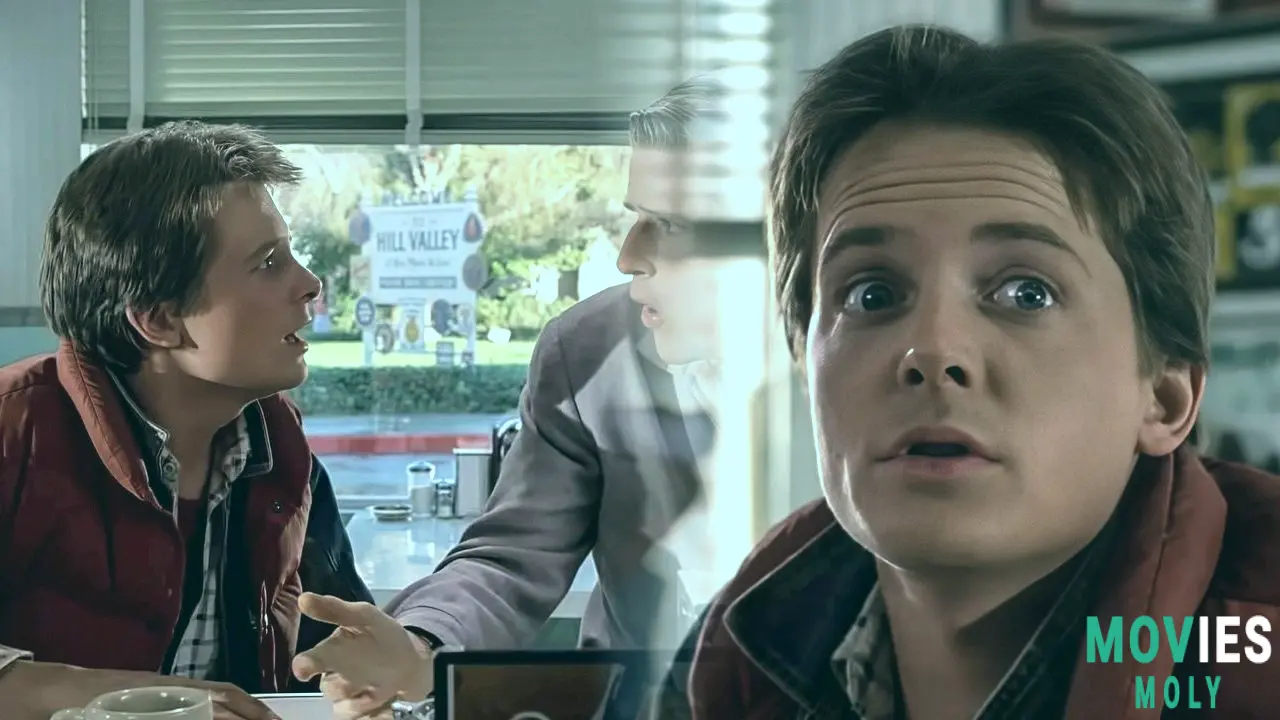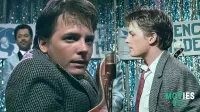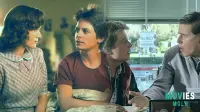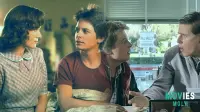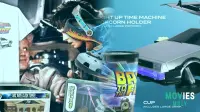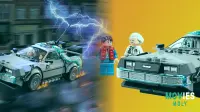Get ready to travel back in time! Michael J. Fox's new memoir spills the tea on one of Hollywood's most famous casting changes, revealing new details about why Eric Stoltz was replaced as Marty McFly in Back To The Future and how the two actors really feel about it today.
TL;DR: Here's the Lowdown!
- Michael J. Fox's new memoir, Future Boy, offers a fresh perspective on the famous Back to the Future recasting, including how the studio tried to keep the swap a secret.
- Eric Stoltz was replaced as Marty McFly after six weeks of filming because his dramatic take didn't fit the comedic tone director Robert Zemeckis envisioned for the character.
- Forty years later, Fox reached out to Stoltz, and the two actors have met and maintain a friendly correspondence, confirming there's no bad blood between them.
When you think of Marty McFly, chances are you instantly picture Michael J. Fox in his iconic red puffer vest, skateboarding through Hill Valley. It’s hard to imagine anyone else in the role of the earnest, slightly bewildered, yet spunky teenager who travels through time. But, as many film buffs know, Fox wasn't the first actor to step into the DeLorean. For six weeks, another talented actor, Eric Stoltz, was the face of Marty McFly.
This legendary recasting has been a whispered tale in Hollywood for decades, but now, Michael J. Fox himself is clearing the air. In his newly released memoir, Future Boy: Back to the Future and My Journey Through the Space-Time Continuum, co-written with Nelle Fortenberry, Fox dives deep into the behind-the-scenes drama, offering a unique, personal account of what actually went down.
The Original Casting Choice and Why Michael J. Fox Was Initially Unavailable
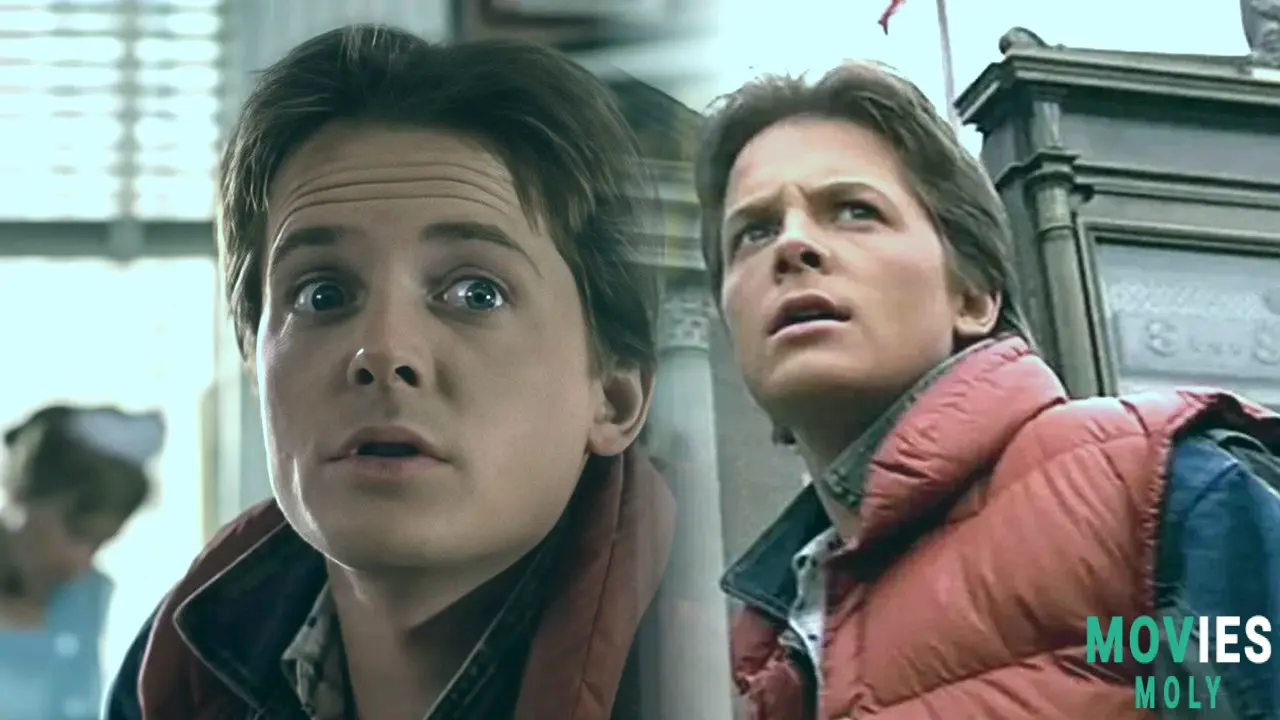
Before Michael J. Fox became synonymous with Marty McFly, the filmmakers had their eyes on a few other rising stars. Names like Johnny Depp (can you imagine?) and Ralph Macchio were in the mix, but Fox was director Robert Zemeckis and writer Bob Gale’s dream pick. The problem? Fox was a hot commodity, locked into a demanding schedule for the hit TV sitcom Family Ties. The show's producer wasn't willing to let him go, leaving Zemeckis and Gale in a bind.
Enter Eric Stoltz. Coming off a strong dramatic performance in Mask, Stoltz had serious acting chops. Universal Pictures CEO Sidney Sheinberg backed the decision to cast him, but with a crucial caveat: if things didn't work out, they could always reshoot with someone else. This contingency, though perhaps ominous at the time, paved the way for the historical change that would follow.
Unraveling the Creative Differences That Led to a Recast
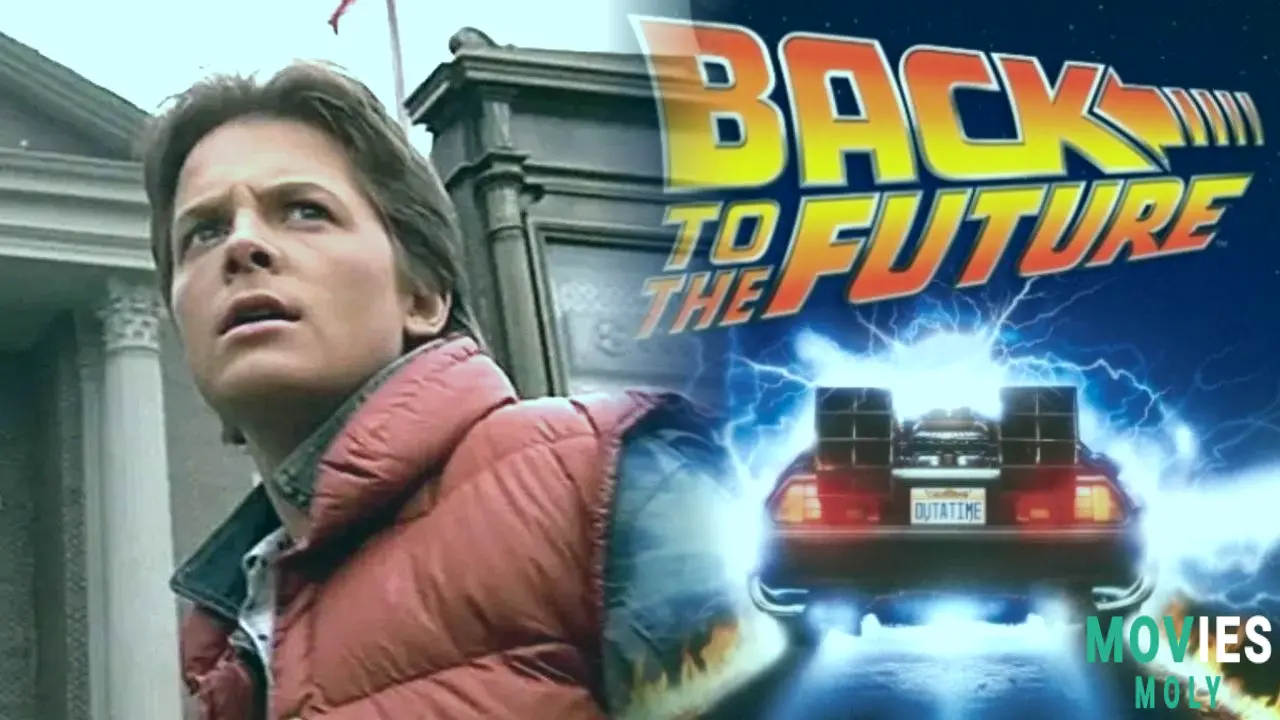
As soon as filming began, it became clear that Stoltz’s vision for Marty McFly wasn’t quite aligning with the filmmakers’. Stoltz, a method actor, approached the role with an intense, dramatic seriousness. He reportedly insisted on being called "Marty" even off-set and, according to co-star Thomas F. Wilson (who played Biff Tannen), even took physical scenes "a little too far," resulting in real bruises during a cafeteria fight rehearsal.
The core issue wasn't a lack of talent but a mismatch in tone. Zemeckis wanted a Marty who was funny, lighthearted, and full of comedic energy. Stoltz, while talented, brought a "little more Shakespeare, a little more tragedy," as Fox explained in his memoir. Lea Thompson, who played Marty's mother, Lorraine, echoed this sentiment:
"Eric had such an intensity. He saw drama in things. He wasn't really a comedian, and they needed a comedian. He's super-funny in real life, but he didn't approach his work like that, and they really needed somebody who had those chops."
— Lea Thompson, speaking about Eric Stoltz's approach to Marty McFly
Even Christopher Lloyd, our beloved Doc Brown, noted that Stoltz wasn't "bringing that element of comedy to the screen." After a month of shooting, Zemeckis, Gale, and the producers reviewed the dailies and knew they had to make a change. The comedic spirit that would define Back to the Future just wasn't gelling.
The Secret Swap: How Michael J. Fox Was Rushed into Production
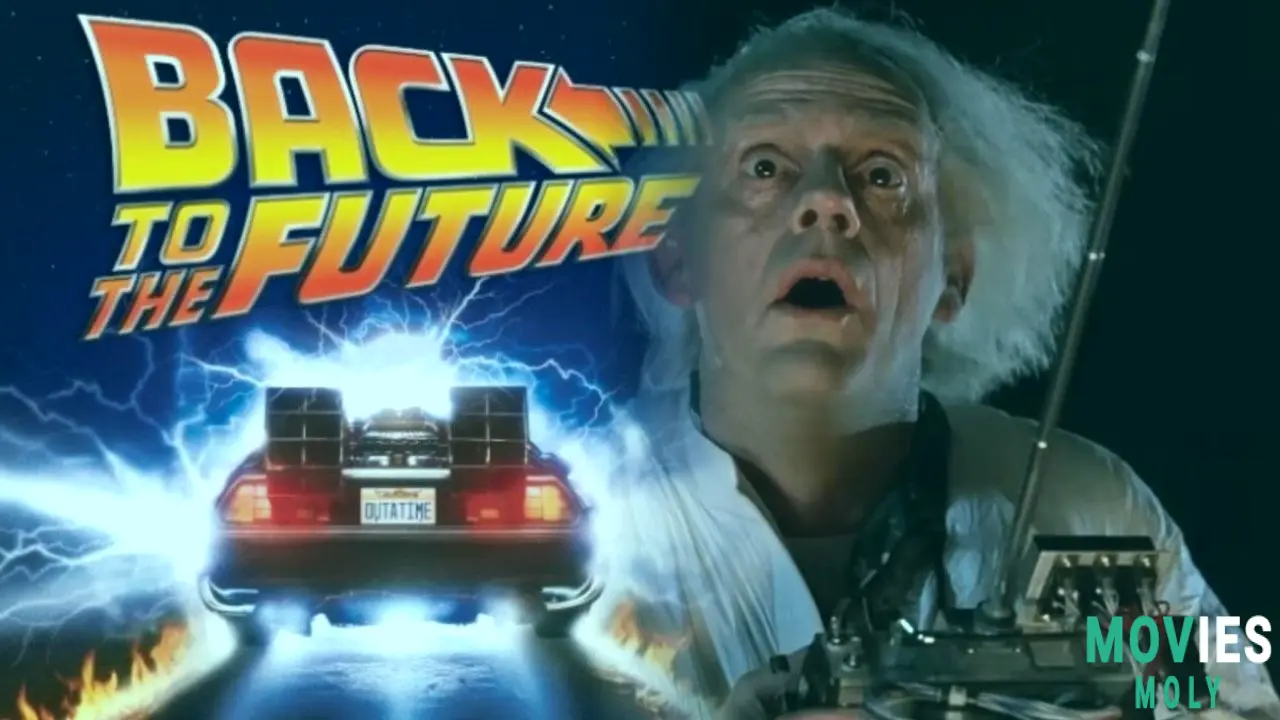
Making a mid-production switch is a huge deal in Hollywood, especially when millions of dollars have already been spent. The studio and creative team, including producer Steven Spielberg, were nervous. As Fox details in Future Boy, Spielberg was "afraid that if they let him [Stoltz] go prematurely and production shut down, the whole film could implode." Universal needed assurance of a "seamless transition" to a new lead.
So, the wheels started turning. They revisited Michael J. Fox, and this time, a deal was struck: Fox could film Back to the Future as long as Family Ties remained his top priority. This meant a brutal, grueling schedule of filming the sitcom during the day and rushing to the movie set at night for overnight shoots. For Fox, it was a whirlwind.
"I don't think the public were aware of it until we were doing it. I was rushed on it, six weeks in, and I had no kind of time to talk about it."
— Michael J. Fox, on his abrupt start as Marty McFly
According to Nelle Fortenberry, they tried to keep the recasting under wraps until Fox officially started. But, as often happens in Hollywood, the news eventually leaked, with publications branding Back to the Future a "troubled production." This created a perception within the industry that the film was a "hot mess."
Jumping into the DeLorean: Michael J. Fox's Hectic Start
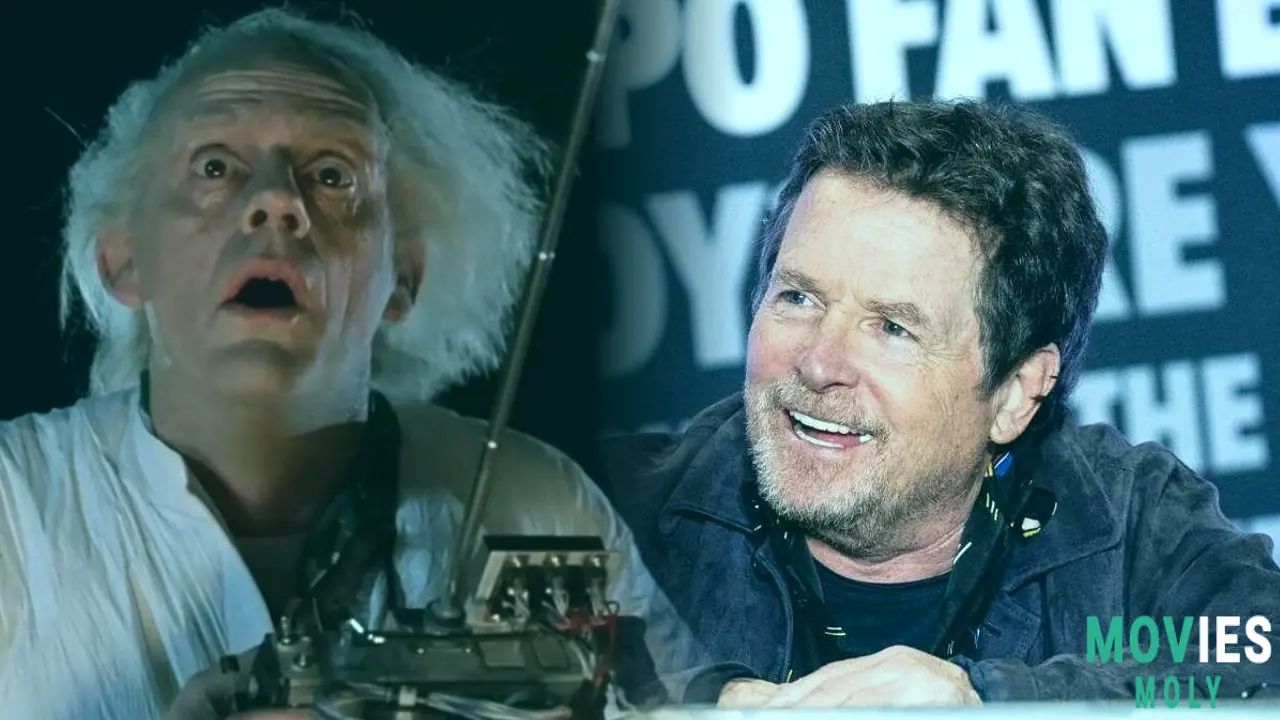
Imagine walking onto a set where everyone else has already been working together for six weeks, having already shot scenes with another actor in your role. That's exactly what Michael J. Fox faced. He had to hit the ground running, creating chemistry with castmates like Christopher Lloyd and Lea Thompson, whom he barely knew.
"The first time I saw [Christopher Lloyd] was when he jumped out the van," Fox recalls in his memoir. "I hadn't talked to him, had never spoken to him about my character. Luckily, he jumped out and did this thing, I thought, 'Holy s, it's going to be great. He's crazy.'"
Despite the exhaustion and the intense pressure, Fox's natural charm, energy, and impeccable comedic timing were exactly what the film needed. He played what he knew, delivering an "earnestly bewildered but spunky take on the role" that quickly made Marty McFly an icon. His performance, honed from years of TV sitcom experience, perfectly captured the lighthearted yet adventurous spirit Zemeckis and Gale had envisioned.
Life After Marty: Eric Stoltz's Perspective and Thriving Career
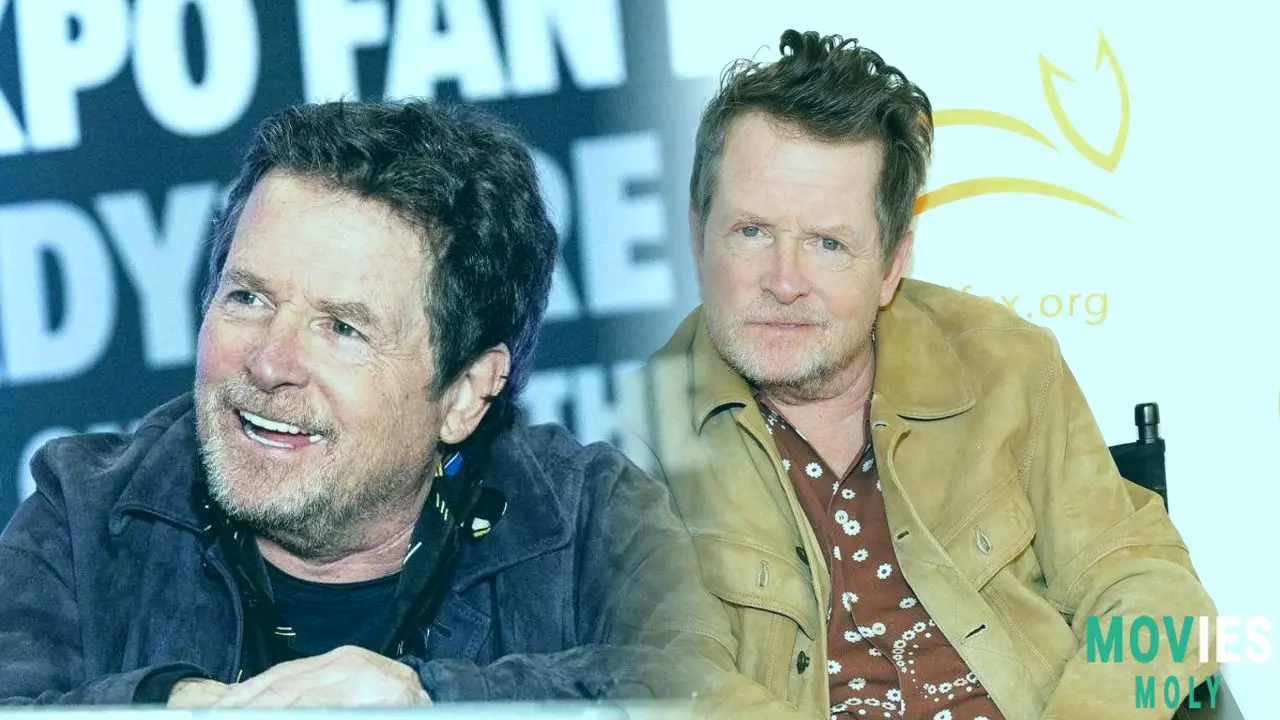
Being replaced on a major film production, especially one that goes on to become a global phenomenon, would be tough for any actor. Eric Stoltz was reportedly the last to know about his impending departure, with filming continuing until Fox's deal was locked in. But how did Stoltz really feel about it years later?
In a rare reflection, Stoltz shared that the experience, while difficult, ultimately felt "freeing." He used it as an opportunity to "invest in myself in a way that was much healthier for me." He went back to acting school, moved to Europe, and focused on stage work. He even humorously mused, "If I had become a massive star, I don't know if I wouldn't have gone into therapy. On the other hand, I would've been exceedingly rich which would've been wonderful!"
Stoltz went on to have a successful and diverse career, including memorable roles in films like Pulp Fiction, showing that while he didn't play Marty McFly, his talent and dedication found other brilliant outlets.
Clearing the Air: Michael J. Fox and Eric Stoltz Today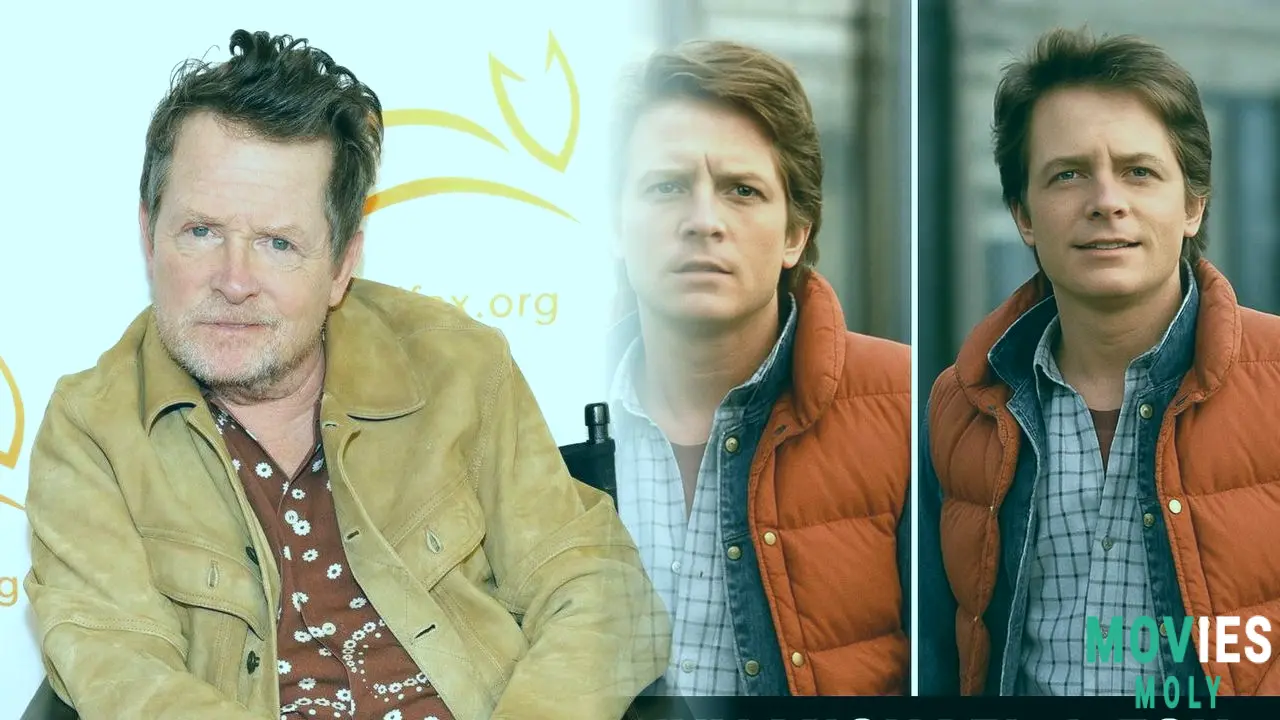
For decades, the narrative of the recasting often implied some kind of rivalry or hard feelings between the two actors. However, Fox's memoir reveals a heartwarming truth. Forty years after the fact, Fox reached out to Stoltz while writing Future Boy.
Fox, prepared for a polite refusal or even silence, sent a message acknowledging Stoltz's long-held privacy on the matter. His offer? "If your answer is 'piss off and leave me alone'... That works, too." Stoltz’s response was, in classic fashion, playfully kind: "Piss off, and leave me alone! I jest."
While Stoltz respectfully declined to participate in the book, he was open to meeting. When they finally did, in Fox's New York home, any lingering questions about bad blood were immediately put to rest. "Neither of us had an issue with the other," Fox wrote. "What transpired on Back to the Future had not made us enemies or fated rivals; we were just two dedicated actors who had poured equal amounts of energy into the same role. The rest had nothing to do with us."
It turns out they had "much more in common than our spin as Marty," and their friendly correspondence continues today, sharing thoughts on movies, family life, and even politics. A true testament to professionalism and mutual respect in a tough industry.
The Enduring Legacy of an Unconventional Casting DecisionThe story of Michael J. Fox replacing Eric Stoltz in Back to the Future is a fascinating peek behind the Hollywood curtain. It highlights how crucial creative vision, tone, and the perfect actor-role fit are for a film's success. While the initial recasting caused ripples of concern and led to the film being labeled "troubled," the ultimate outcome speaks for itself.
Back to the Future became a monumental hit, spending nearly three months at the top of the box office in 1985 and launching a beloved franchise that has since grossed over $1 billion. Michael J. Fox’s portrayal of Marty McFly is etched into cinematic history, a testament to his talent and the filmmaking team's brave decision to prioritize their vision.
This saga reminds us that sometimes, even when a production hits a major snag, the right choices, even tough ones, can lead to timeless movie magic. And in this case, it also led to a heartwarming resolution between two dedicated actors, decades later.
Frequently Asked Questions About the Back to the Future Recasting When was Michael J. Fox's memoir, Future Boy, released? Michael J. Fox's memoir, Future Boy: Back to the Future and My Journey Through the Space-Time Continuum, co-written with Nelle Fortenberry, was released on October 14, 2025. How long did Eric Stoltz film as Marty McFly before being replaced? Eric Stoltz filmed for approximately six weeks as Marty McFly before the decision was made to replace him with Michael J. Fox. Why was Eric Stoltz ultimately replaced in Back to the Future? Stoltz was replaced because his intense, dramatic acting style didn't align with the comedic and lighthearted tone that director Robert Zemeckis and writer Bob Gale envisioned for the character of Marty McFly. Do Michael J. Fox and Eric Stoltz have any hard feelings toward each other? No, Michael J. Fox confirmed in his memoir that there are no hard feelings. He reached out to Stoltz 40 years later, and they met, finding that they had much in common and no personal issues regarding the recasting.Sources:
- io9
- ScreenRant
- GeekTyrant
- Hollywood Life
- CBR
- Nerdbot
- LitHub
- Evolve Editors

